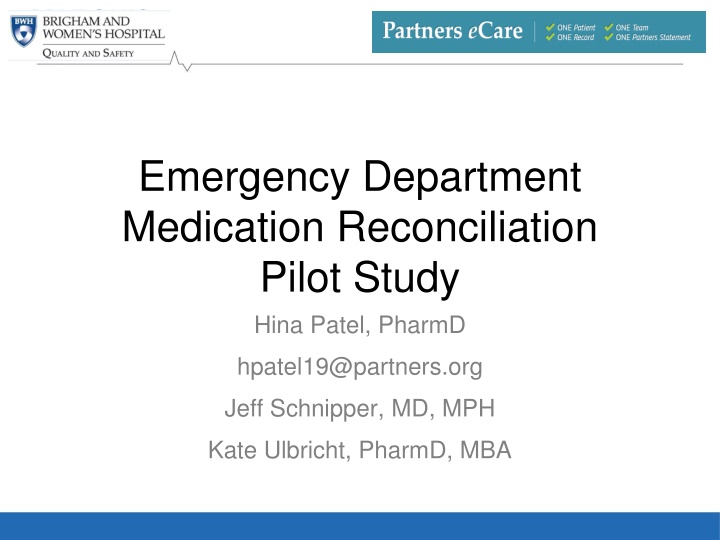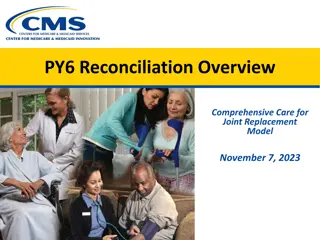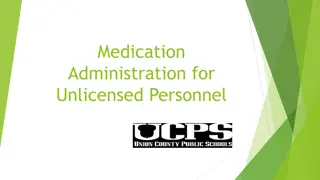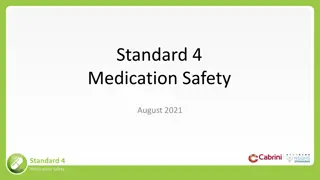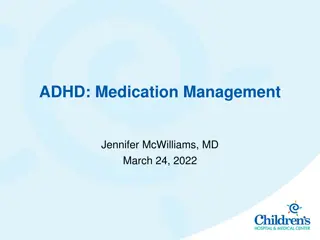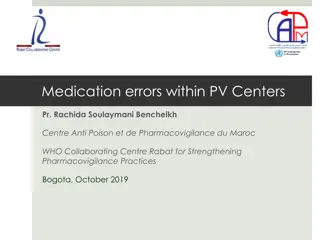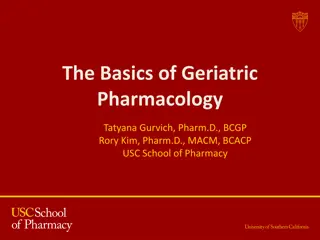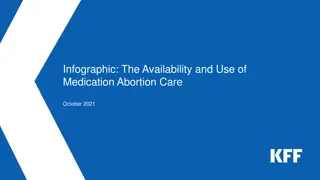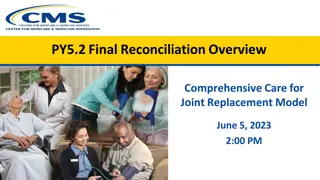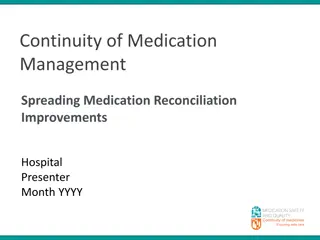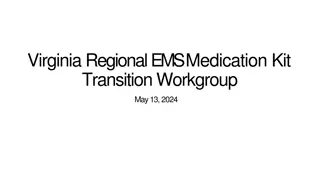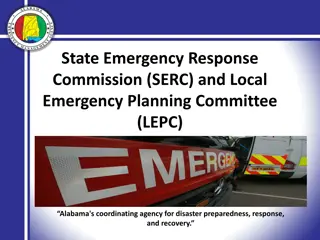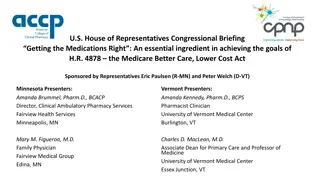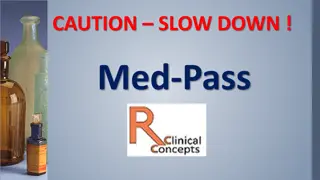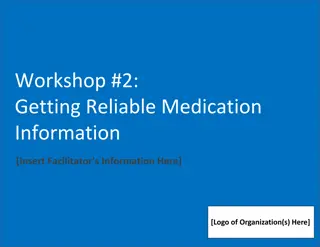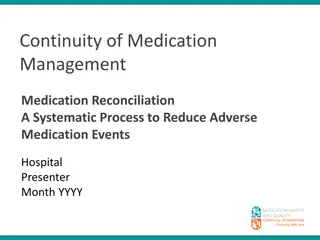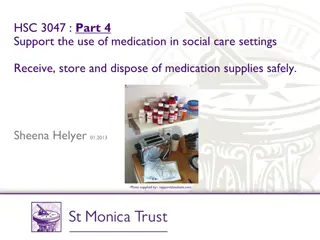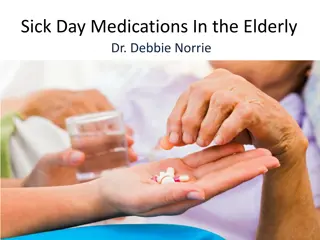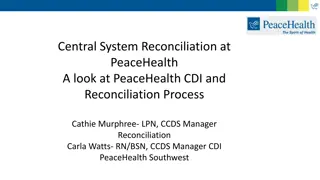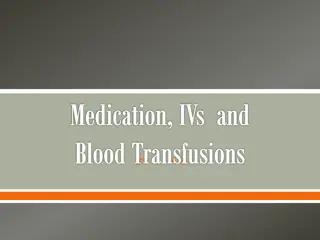Emergency Department Medication Reconciliation Pilot Study
This pilot study at Brigham and Women's Hospital ED aimed to improve patient safety by reducing medication errors through Best Possible Medication Histories (BPMH). The study showed a 65% reduction in errors, increased workforce efficiency, and positive financial outcomes. Potential benefits included reduced readmissions, improved staff satisfaction, and enhanced EHR transition. However, limitations in ROI calculation and pharmacy student rotations were noted.
Download Presentation

Please find below an Image/Link to download the presentation.
The content on the website is provided AS IS for your information and personal use only. It may not be sold, licensed, or shared on other websites without obtaining consent from the author.If you encounter any issues during the download, it is possible that the publisher has removed the file from their server.
You are allowed to download the files provided on this website for personal or commercial use, subject to the condition that they are used lawfully. All files are the property of their respective owners.
The content on the website is provided AS IS for your information and personal use only. It may not be sold, licensed, or shared on other websites without obtaining consent from the author.
E N D
Presentation Transcript
Emergency Department Medication Reconciliation Pilot Study Hina Patel, PharmD hpatel19@partners.org Jeff Schnipper, MD, MPH Kate Ulbricht, PharmD, MBA
Setting and Subjects Brigham and Women s Hospital Emergency Department is a level-1 trauma center with >23,500 patients admitted from ED to inpatient beds per year Concerned about medication conversion during PeCare new electronic health record (EHR) launch phase so launched pilot program to improve patient safety and prevent ADEs Best Possible Med Histories (BPMH) of ED patients designated for admission or in EDOBS from 8am-12 midnight >18 years old, regardless of the number of past visits at a Partners-affiliated institution No written patient consent needed, internal quality improvement initiative
Outcomes 65% Reduction in medication Errors ED Med Rec Support Team modified ~7.07 each patient s pre-admission medication list compared with legacy ambulatory LMR 0.58 features on
Efficiency and ROI Summary Work force efficiency ~1.21 patients/hr for all med history takers Average significantly decreased by rotating pharmacy students on 6-week clerkships 5 year aggregate ROI ~$726k to $1.12M (higher with rotating pharmacy students) Assumes all eventually efficient enough to see 1.7 patients/hr, students may not hit max efficiency but add benefits (help more patients, stipends, validate training materials, conduct audits, mentorship value, recruiting tool) We conclude that this med rec initiative improves patient safety by decreasing med discrepancies, and has short and long-term financial benefits
Other Potential Intervention Benefits 1. Reduce readmission and litigation expenses for the hospital due to ADEs 2. Providers and nurses can serve more patients 3. Improve staff satisfaction with workflow efficiency, aiding recruitment and retention 4. Increase satisfaction with EHR transition 5. Gain multidisciplinary trust in clinical pharmacists, making future targeted pharmacist-led drug cost reduction efforts more easily achievable 6. Support regulatory compliance (NPSGs) 7. Public relations benefits for the hospital
Limitations ROI calculation 0.9% of med errors that lead to actual harm based on Bates study from the 1990s, before we knew what med rec was (i.e., this is for all types of medication errors) Percentage is probably a low estimate, but for med rec errors specifically, we don't know what percent lead to actual inpatient harm Pharmacy students doing 6-week rotations Standardization of data collection was more challenging, re-training time investment
Additional Challenges ED open 24/7, so only saw ~74% of patients admitted from ED Sicker patients in the ED on more meds, difficult to interview Only 16% patients had med lists available during ED visits Time spent during interview could have been much less if patients had up-to-date med lists
Proposed Future Improvements 1. Staff workflow improvements Utilize electronic scheduling 2. Utilize algorithm Prioritize patients by automatically stratifying them into risk categories 3. Better inform inpatient clinical staff about the program 4. Offer counseling Improve patient outcomes for high-risk conditions, populations, or medications Remind patients to keep current med list with them
Implications for Hospital Leadership Site success & failure (nationally and at BWH) was directly related to institutional support Successful efforts had an executive sponsor from the C Suite Administrative support at the hospital level is needed Effort will likely require support on several fronts Good Med Rec = Culture Change Med Rec processes are interprofessional. Allows for: Understanding of baseline practices & variations Creating clear delineation of roles & responsibilities Med Rec processes are interprofessional. An engaged interprofessional QI team Allows for: Understanding of baseline practices & variations Creating clear delineation of roles & responsibilities
Next Steps Strategies for sustainability Second round of mentored implementation funded by AHRQ: now recruiting 18 new sites Disseminate the MRA model broadly Train the trainer workshop just completed at ASHP Leaders Conference Develop a BPMH curriculum for medical students, using didactic materials, videos, simulation testing from MARQUIS o Macy Foundation proposal submitted National roundtable discussions o NQF Measure o Balanced Scorecard o EHR Vendors
Acknowledgment Brian Alesandro, PharmD Dylan Moriarty Catherine Behret Sikemi Obatusin Joseph Bizier Hina Patel, PharmD James Brewster Nikhil Sangave Vanya Chan Daisy Sarpong Heather Cocchi Pauline Situ Casey Dempsey Edmond Solomon Cameron Dumas Christopher Talbot Martin Hesselbacher Amanda Tang, PharmD Vivian Hua Mark Thistlewood, CPhT Shanice Johnson, CPhT Jonathan Tiongson Eunji Michelle Ko, PharmD Rohit Tonk, MD Xiao Liang Shira Winter, RN
